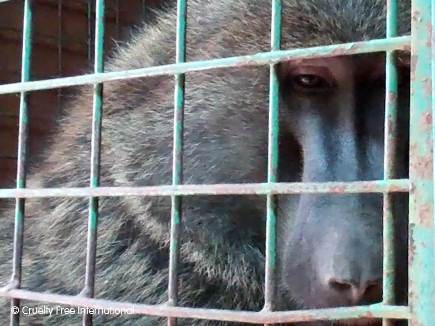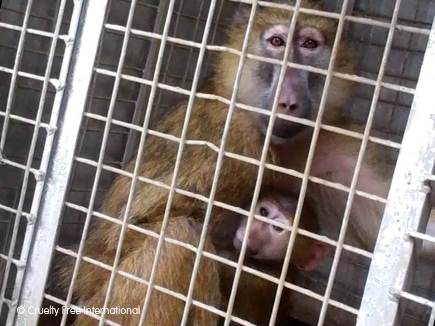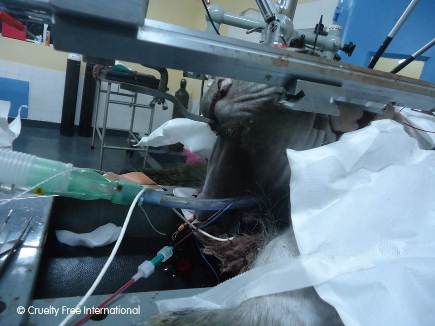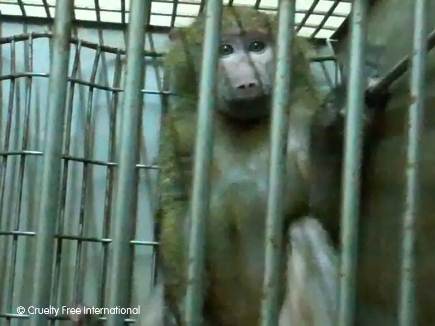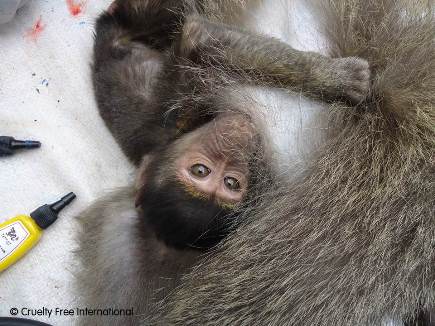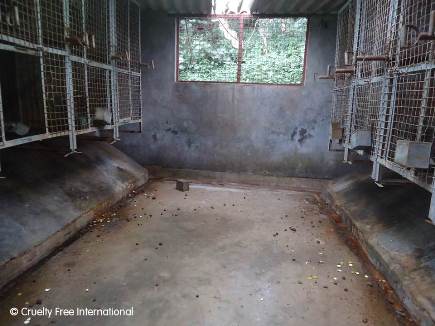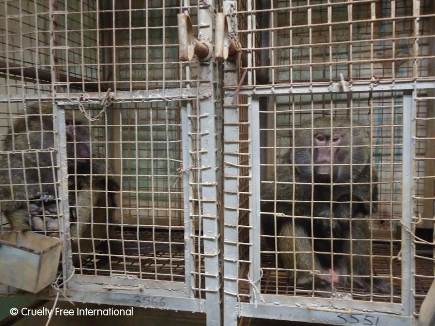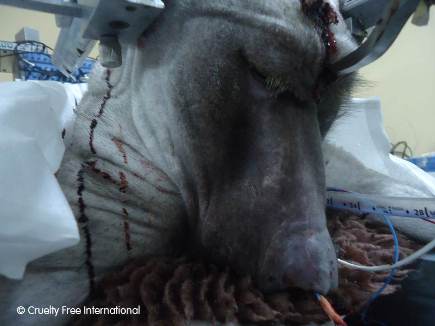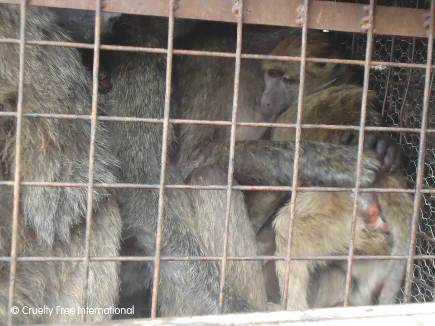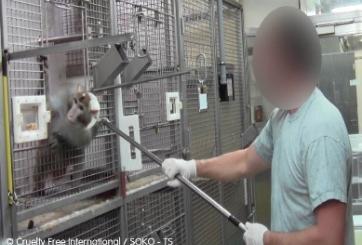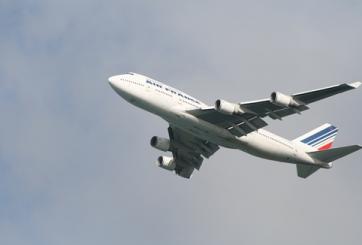Experiments on wild baboons in Kenya
Our investigation exposes the cruel use of wild baboons in for animal experiments
In 2013 we went undercover in Kenya to investigate animal experiments on wild baboons at the Institute of Primate Research in Nairobi.
We uncovered disturbing evidence of the cruel capture and captivity of wild baboons held at the Institute, and the terrible fate which awaited them.
The baboons were kept in conditions which compromised their welfare and breached international guidelines. They were forced to suffer in disturbing experiments including those carried out by researchers from the USA and Europe.
WARNING video contains footage that some viewers may find upsetting

Keeping baboons in these terrible conditions when they are used to living freely on the plains of Africa is desperately cruel. You can see from the images how barren and restrictive their cages are compared to the open spaces in their natural habitat. Using wild-caught primates in research has been banned in the UK and I think it is unacceptable that UK researchers should travel to Kenya to carry out such experiments. I fully support the campaign to stop this. Chris Packham
Key findings
Wild baboons were trapped, crammed into small wire cages and transported for many hours on the back of a truck to the Institute of Primate Research. Official international bodies recognise that the capture of wild monkeys like these inflicts great suffering on animals who are taken from their natural habitat and families.
These wild baboons were held in poor conditions at the Institute of Primate Research in Nairobi. Some baboons were kept for years in solitary confinement in small, barren cages. Such conditions can cause disturbed abnormal behaviour and some animals were seen pacing and circling.
The baboons were forced to suffer in disturbing experiments. Many of these animal experiments were highly invasive andcaused immense suffering. Some were even fatal.
WARNING image gallery contains graphic images that some viewers may find upsetting
It is hard to comprehend how frightening and confusing it must be for any wild animal to find itself suddenly seized and held captive in a small barren cage. The film from this investigation is truly upsetting and I hope it results in a positive change for animals with a ban on the use of wild-caught primates for research. Joanna Lumley
The experiments
The experiments carried out on baboons included invasive brain surgery. The baboon's head was placed into a frame and held in place whilst researchers drilled open their skull and removed parts of their brain. The animals were kept alive under anaesthetic for many hours while tests were carried out, before they were killed.
Other animal experiments carried out at the Institute of Primate Research in Kenya involved force-feeding male baboons the herbal stimulant khat. Researchers then forced the baboons to ejaculate while sedated by electrocuting them. This was done to examine how khat affects sperm.
Researchers infected female baboons with Chlamydia. Other female baboons were forced to suffer surgery to test new IVF techniques and contraceptive devices (IUDs).
Using wild monkeys in experiments
Using wild-caught monkeys was banned in the UK in 1995. In Europe, primates used in animal experiments must be purpose bred (except under exceptional circumstances).
But shockingly, researchers from the UK and Europe travelled to Kenya to carry out experiments on wild baboons. ,.
Researchers from the University of Newcastle bypassed UK law and travelled to Kenya to use wild-caught baboons in disturbing and highly invasive animal experiments. In doing so, they breached guidance by UK funding bodies which requires UK animal researchers to maintain UK animal welfare standards when carrying out experiments oversees.
What we achieved
Our investigation received widespread media coverage and support, including from celebrities such as Dr Jane Goodall, Joanna Lumley, Ricky Gervais and Chris Packham. Within weeks, Newcastle University announced that it would end its involvement in the controversial research on wild-caught baboons.
A petition with over 45,000 signatures was sent the President of Kenya and we held a meeting with the Kenya High Commissioner in London supported by leading conservationist and biologist Ian Redmond. Our campaign to end this cruelty continues.

